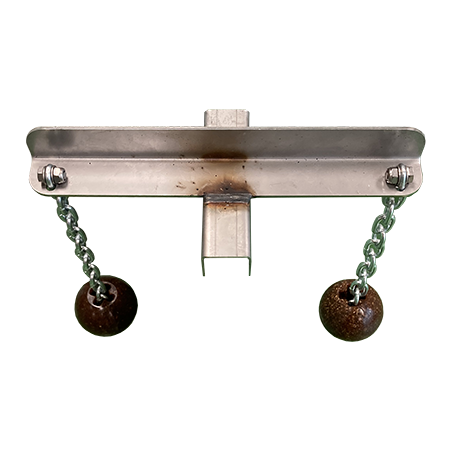Muscle postmortem glycolysis and oxidative stability are widely believed to be two important indicators of meat quality. On one hand, postmortem extended glycolysis results in an adverse meat quality, even across different species. On the other hand, the metabolites produced during the oxidative reactions in muscles have serious adverse effects on the quality of meat, such as the loss of meat color and the reduction of nutritional value. Recently, numerous studies have focused on improving the meat quality of pigs through dietary supplementation with antioxidant compounds. Garcinol is the major component of the Garcinia indica fruit rind, which has been reported to have potential antioxidative and anti-inflammatory effects. Furthermore, garcinol is regarded as an extremely potent natural inhibitor of p300/CBP - associating factor (PCAF), therefore, it may have a potential ability to attenuate muscle postmortem glycolysis in addition to promoting antioxidant stability. Therefore, the aim of the present study was to assess the effects of dietary garcinol (0, 200, 400 and 600 mg/kg) on the growth performance, meat quality, postmortem glycolysis and antioxidative capacity of finishing pigs. For that purpose, 80 barrows (Duroc × Landrace × Yorkshire) with an average BW of 79.4 kg were used in this study. The pigs were randomly allotted to four dietary treatments (five replicates (pens) with four pigs per pen): control diet (basal diet), basal diet+200 mg garcinol, basal diet+400 mg garcinol, and basal diet+600 mg garcinol per kg of feed.
As a result, dietary garcinol significantly increased pigs' ADG, pH24h, a* and myoglobin content of longissimus dorsi (LM), and decreased F:G ratio, the L*24h, glycolytic potential, drip loss, shear force, and backfat depth. The glutathione peroxidase, catalase and total antioxidative capacity were significantly increased by garcinol, while the activity of lactate dehydrogenase and malonaldehyde content were decreased. Moreover, garcinol decreased the PCAF activity.

In conclusion, garcinol decreased postmortem glycolysis, maybe due to the mechanism of decreasing glycolytic enzyme acetylation induced by PCAF. Hence, these results suggest that garcinol can facilitate the growth performance of pigs and improve pork quality by influencing muscle postmortem glycolysis and its oxidative stability.
Wang, T., Li, J., Shao, Y., Yao, W., Xia, J., He, Q., & Huang, F. (2020). The effect of dietary garcinol supplementation on oxidative stability, muscle postmortem glycolysis and meat quality in pigs. Meat science, 161, 107998. https://doi.org/10.1016/j.meatsci.2019.107998









